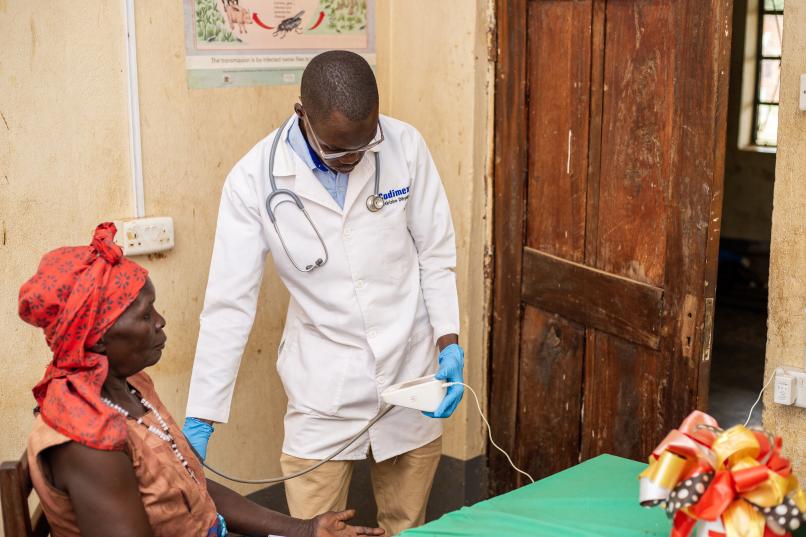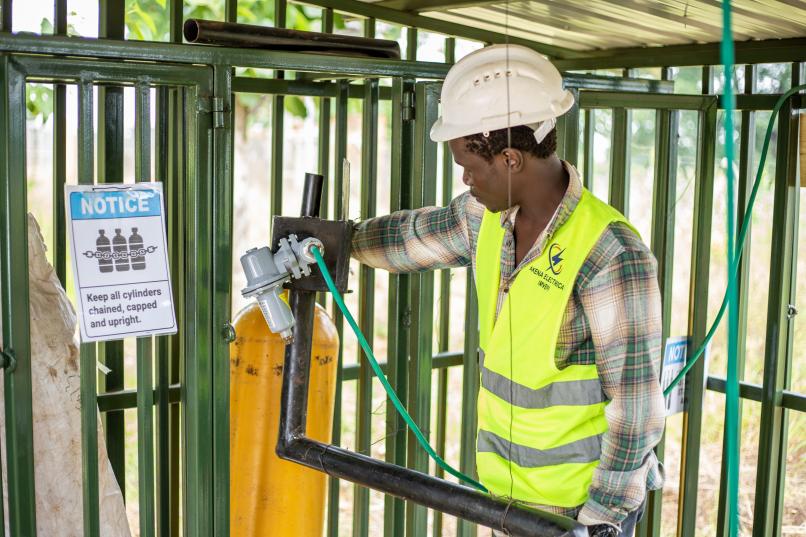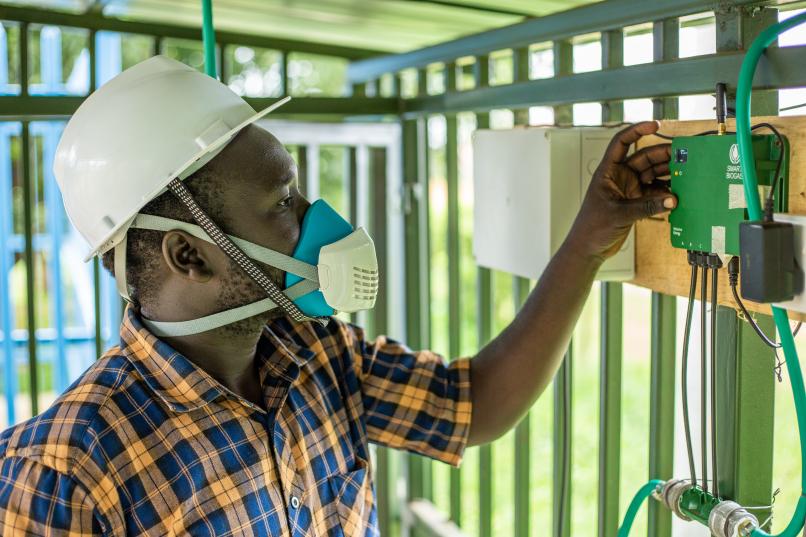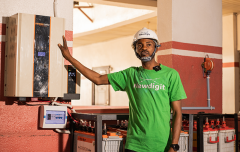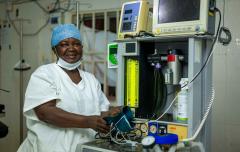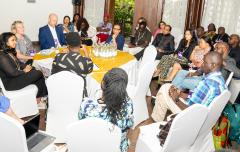Biogas Innovation Powers Ugandan Health Facilities in Displacement Settings
Kampala, Uganda | August 19 2025 – Ugandan health centers in remote refugee and host community settlements can now keep life-saving medical equipment running without power cuts, thanks to an innovative biogas solution by Biogas Solutions Uganda Limited (BSUL) and Inclusive Energy. As part of the first cohort supported by the Powering Healthcare Innovation Fund, this project is transforming critical healthcare services through energy access.
Based in Kampala, Uganda, BSUL is pioneering the installation of biogas generators and piloting bottled biogas as a sustainable energy source for remote and underserved health facilities. Michel Muvule Pinto, Program Director at BSUL, said, “We are using purified biogas to power biogas generators and provide reliable electricity. We’re able to deliver this to any facility and train the staff to use this affordable source of power to improve service delivery.”
The biogas systems provide clean, reliable power for lighting, sterilizing medical equipment and running refrigeration and laboratory appliances, including blood and vaccine refrigerators and electric autoclaves. The biogas is generated from abundant waste streams thereby delivering a scalable, sustainable waste-to-energy solution.
BSUL is working closely with UK-based Inclusive Energy, who is equipping the project with Smart Biogas Meters for real-time remote monitoring. This digital tool helps track biogas usage, detect leaks and forecast demands, laying the groundwork for a billing system based on usage for health facilities.
BSUL’s biogas project is being rolled out in two refugee settlements and one host community neighbourhood, in health centres providing preventative, promotive and curative care including maternity and laboratory services:
- Yinga Health Center III, Imvepi Refugee Settlement, Terego District serves a catchment population of 26,000.
- Rhino Camp Health Center IV, Rhino Camp Refugee Settlement, Madi-Okollo District serves a catchment population of over 18,000.
- Odupi Health Center III, Odupi Subcounty, Terego District (host community) serves 20,000 patients.
To ensure long-term sustainability, BSUL is training healthcare staff and local technicians on the operation and maintenance of the biogas systems and supplied medical equipment. Training is supported through a custom-built online/offline app, developed in partnership with Dutch tech company SkillEd.
Additionally, a 10-ton daily-feed bio-digester is under construction at the Living Lab in Imvepi Refugee Settlement. This facility will serve as a central production and bottling hub, creating several green jobs and ensuring a steady supply of biogas to the participating health centres.
Powering Healthcare Innovation Fund
Funding for this project came from the Powering Healthcare Innovation Fund, which was launched by Sustainable Energy for All (SEforALL) in 2024 supported by UK aid from the UK government via the Transforming Energy Access (TEA) initiative. The fund is designed to unlock novel approaches and ideas that can advance healthcare electrification. Following the success of the first round, SEforALL has now launched the second funding cycle to scale impact.
Out of 84 applicants, three grantees were selected in the first round, with BSUL and IE receiving a grant of USD 85,000 to implement their innovative biogas-powered healthcare solution. Project implementation began in September 2024 and is expected to conclude this month.
Charlie Knight, Senior Energy Officer, SEforALL, who manages the Innovation Fund, said, “This initiative represents a promising leap toward sustainable, resilient healthcare infrastructure, especially in refugee and host communities. It exemplifies the potential of local innovation and global partnerships to address critical energy access challenges in the health sector.”
The second round of the Innovation Fund will remain open for applications until 8th September, 2025. The fund will offer grants of up to USD 80,000 per project to support novel solutions related to sustainability and long-term service delivery, research and data, capacity building and technical assistance. Interested applicants can apply here: https://www.ungm.org/Public/Notice/273237.
Media Contact:
Nashwa Naushad
Nashwa.naushad@seforall.org
+43 6765360622

